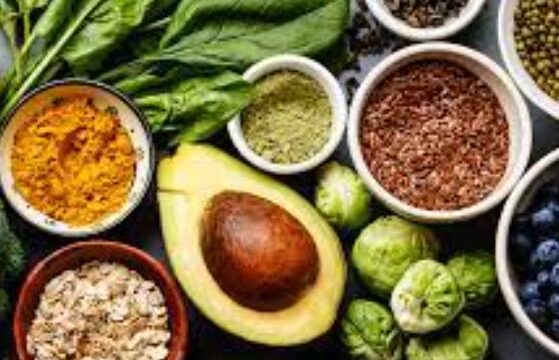Aging is a journey filled with new experiences, shifting perspectives, and sometimes unexpected challenges.
One aspect of aging that often goes overlooked is emotional strength.
While physical well-being is frequently discussed, maintaining a balanced mood, resilience, and mental clarity is just as vital.
Food plays an important role in shaping emotional health, especially for older adults. The nutrients we consume can influence brain chemistry, energy levels, and even how well we cope with daily stress. Choosing the right foods can be a meaningful step toward nurturing both mind and spirit during later years. Why Food Matters for Emotional Health in Older Adults As people age, natural changes in the brain and body can affect how emotions are experienced. Hormonal shifts, changes in sleep patterns, and even social transitions such as retirement or loss of loved ones may influence mood. Nutrition provides one of the most accessible tools for supporting emotional well-being. Certain foods contain vitamins, minerals, and healthy fats that help the brain maintain stable neurotransmitter levels. Others reduce inflammation, which has been linked to emotional ups and downs. A thoughtful diet can encourage steadier moods, greater energy, and a more optimistic outlook. Omega-3 Rich Foods and Emotional Balance Fatty fish such as salmon, mackerel, and sardines are well-known for their omega-3 fatty acids. These nutrients have been linked to supporting brain health by aiding in communication between nerve cells. Research suggests omega-3s may help regulate mood and support cognitive resilience, making them especially valuable for older adults. For those who prefer plant-based options, walnuts, flaxseeds, and chia seeds also provide healthy omega-3s. Including these foods regularly can help create a foundation for steadier emotional strength. Leafy Greens for a Clear Mind Dark leafy greens like spinach, kale, and Swiss chard are packed with folate and magnesium, both of which play a role in brain function and emotional health. Folate supports the production of neurotransmitters that influence mood, while magnesium contributes to relaxation and calmness. For aging adults, adding a side salad, sautéed greens, or a blended smoothie with leafy vegetables can be a simple and delicious way to enhance both nutrition and emotional well-being. Whole Grains for Lasting Energy Emotional steadiness often relies on balanced energy levels throughout the day. Whole grains such as oats, quinoa, and brown rice provide a steady release of glucose, fueling the brain without the sudden spikes and drops that refined grains can cause. Stable blood sugar levels support clearer thinking and reduce feelings of irritability or fatigue. For older adults, incorporating whole grains into breakfast or dinner can offer both comfort and consistency. Berries and Their Protective Benefits Blueberries, strawberries, and blackberries are rich in antioxidants that help protect the brain from oxidative stress. Oxidative stress can accelerate cognitive decline and impact emotional balance. The bright colors of these fruits signal the presence of powerful compounds that support brain health. In addition to their nutritional value, berries are naturally sweet and satisfying, making them a pleasant addition to meals or snacks. Fermented Foods and the Gut-Brain Connection An increasing amount of research highlights the relationship between gut health and emotional strength. The gut and brain communicate closely, meaning that a balanced digestive system can contribute to a more stable mood. Foods such as yogurt with live cultures, kefir, sauerkraut, and kimchi provide beneficial probiotics that support gut bacteria. For aging adults, adding a small portion of fermented foods each day can foster better digestion while gently supporting emotional resilience. Nuts and Seeds for Steady Support Almonds, sunflower seeds, pumpkin seeds, and cashews are rich in nutrients such as vitamin E, zinc, and healthy fats. These compounds assist in protecting brain cells, promoting nerve function, and supporting emotional regulation. Because they are easy to store and require no preparation, nuts and seeds can be a convenient snack option that provides lasting satisfaction and nourishment. Legumes for Consistent Wellness Beans, lentils, and chickpeas are excellent sources of plant-based protein, fiber, and B vitamins. B vitamins are particularly significant because they support neurotransmitter production and energy metabolism. A hearty lentil soup or bean stew can be both comforting and beneficial for maintaining emotional steadiness. For older adults who want easy-to-digest meals, legumes provide nourishment that is gentle on the system while offering emotional health benefits. Hydration and Herbal Teas Water is often overlooked, yet hydration is essential for both physical and emotional strength. Even mild dehydration can affect mood and concentration. Herbal teas such as chamomile, peppermint, or lemon balm can provide calming effects while encouraging regular hydration. For aging adults, keeping water and soothing teas nearby can help maintain a sense of calm throughout the day. The Comfort of Dark Chocolate in Moderation A small piece of dark chocolate can be more than just a treat. It contains compounds that may encourage the release of endorphins, the body’s natural mood boosters. Dark chocolate also offers antioxidants and magnesium. While moderation is key, enjoying a small portion of high-quality dark chocolate can bring moments of pleasure and comfort, which are important for emotional strength. Creating Balanced Meals for Emotional Support It is not just individual foods but the overall pattern of eating that shapes emotional well-being. Balanced meals that combine proteins, complex carbohydrates, healthy fats, and plenty of colorful vegetables provide the nutrients needed for both body and mind. For aging adults, simple meals such as grilled salmon with quinoa and steamed greens, or a chickpea salad with olive oil dressing and fresh berries for dessert, can be both nourishing and emotionally supportive. The Role of Routine and Enjoyment Beyond nutrients, the act of eating itself can nurture emotional strength. Sitting down to a well-prepared meal, sharing food with loved ones, and enjoying favorite flavors all contribute to a sense of stability and joy. Routine meals give structure to the day, while new recipes can bring excitement and variety. Emotional health is supported not only by what is on the plate but also by how meals are experienced. Final Thoughts Aging adults deserve to feel emotionally strong, supported, and resilient. While challenges naturally come with age, diet offers a gentle and powerful tool for maintaining emotional balance. Foods rich in omega-3s, leafy greens, whole grains, berries, fermented foods, nuts, legumes, and hydrating drinks all work together to support brain and emotional health. Enjoyed regularly, these foods can make a positive difference in mood, energy, and outlook. Eating with care and intention helps turn meals into a daily practice of self-support, nourishing both body and spirit in the journey of aging.






